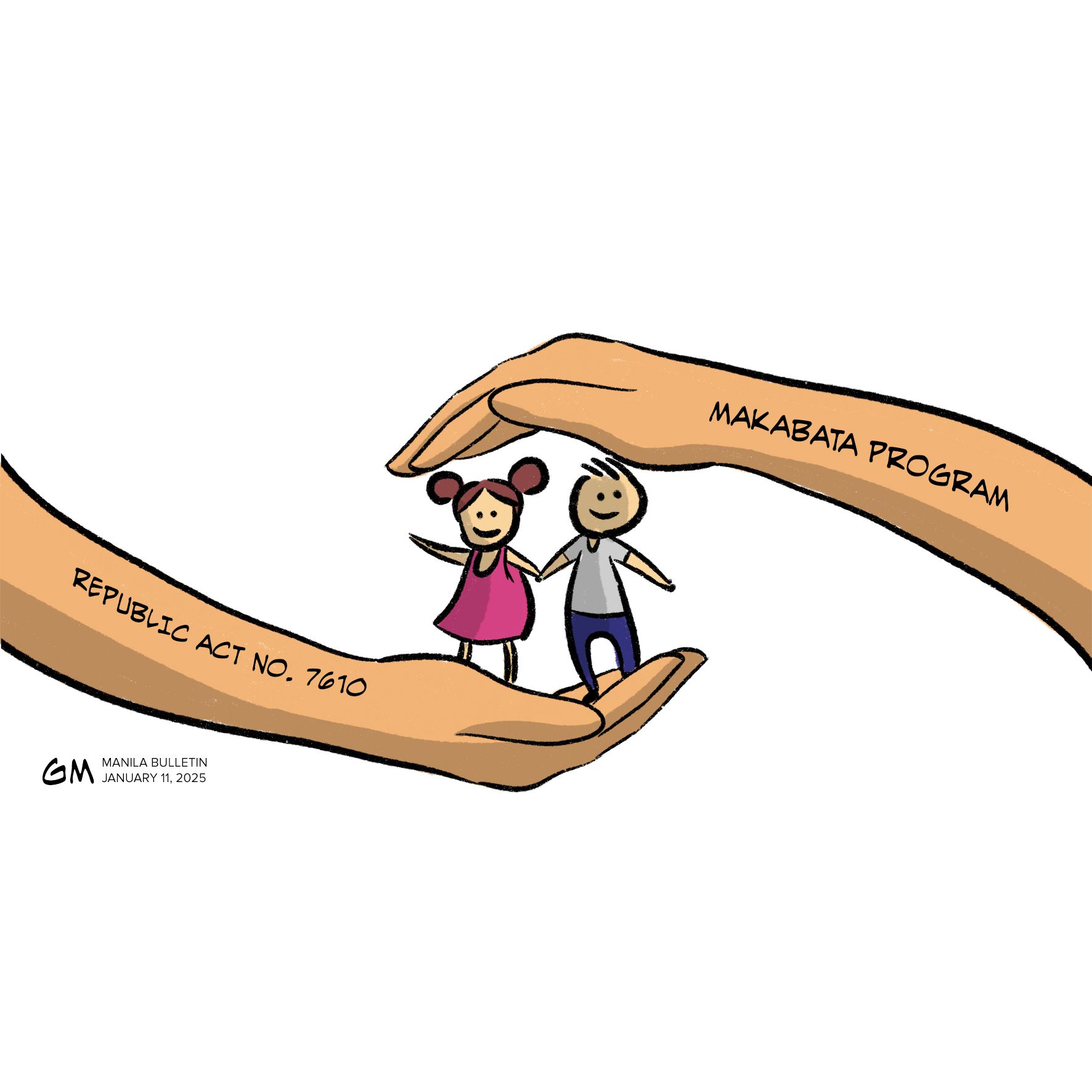
Almost unnoticed because topics like these do not go viral in social media, two news stories days ago reported developments that highlight the country’s commitment to protecting its most vulnerable citizens — children.
First was the Supreme Court decision upholding the conviction of a father for child abuse, and second, the establishment of the Makabata Hotline 1383 which is the centerpiece of a government program to protect children which was cited by the Commission on Human Rights (CHR).
These actions reflect a collective effort to ensure children grow up in an environment that respects their dignity and nurtures their potential.
The Makabata (Mahalin at Kalingain Ating mga Bata) program was launched under Executive Order No. 79 by President Marcos Jr. on Dec. 6, 2024. It is a comprehensive initiative aimed at addressing and monitoring issues affecting children in need of special protection (CNSPs). The Makabata Hotline 1383 is a platform for reporting child rights violations. The program aligns with Republic Act No. 7610, the Special Protection of Children Against Abuse, Exploitation, and Discrimination Act, and reaffirms the Philippines’ commitment to the UN Convention on the Rights of the Child.
The Makabata program provides immediate safety interventions, psychosocial support, legal assistance, and medical aid for victims. It ensures age-appropriate, gender-responsive education and skills development while facilitating alternative care placements for those in dire circumstances. While the Department of Social Welfare and Development (DSWD) is mandated to lead the program, all government agencies have been named to support its implementation.
The CHR lauded this initiative as a vital step toward preparing children for a brighter future. By addressing issues such as abuse, neglect, and exploitation, the program lays the foundation for a more compassionate and equitable society.
On the other hand, the Supreme Court’s recent ruling serves as a stark reminder of the legal consequences of child abuse. The case involved a father who inflicted excessive violence on his children over trivial matters. His 12-year-old daughter was struck multiple times with a wooden rod embedded with a nail for not eating lunch, while his 10-year-old son was beaten with a dustpan over missing money in his savings. These acts were deemed disproportionate and degrading, violating Section 10(a) of RA 7610.
In dismissing the appeal of the father, the SC said that “he went overboard in discipling his children when he inflicted upon them physical injuries due to trivial matters.”
The father was convicted of three counts of child abuse and sentenced to an indeterminate prison term ranging from four years, nine months, and 11 days to six years, eight months, and one day for each count. Additionally, he was ordered to pay P15,000 in fines and ₱20,000 each in moral, exemplary, and temperate damages to both children, with interest accruing until fully paid.
The decision reinforces the principle that while parents have the right to discipline their children, such actions must not debase or harm their dignity. It sends a clear message: violence and excessive punishment will not be tolerated.
These advancements highlight the importance of a society-wide commitment to protecting children. Beyond addressing abuse, holistic child welfare requires ensuring access to proper nutrition, quality education, and safe living conditions.
The Makabata program and the Supreme Court’s decision reaffirms the Philippines’ dedication to upholding the rights and dignity of its youngest citizens. By continuing to prioritize the welfare of children, the nation can pave the way for a brighter, more inclusive future.